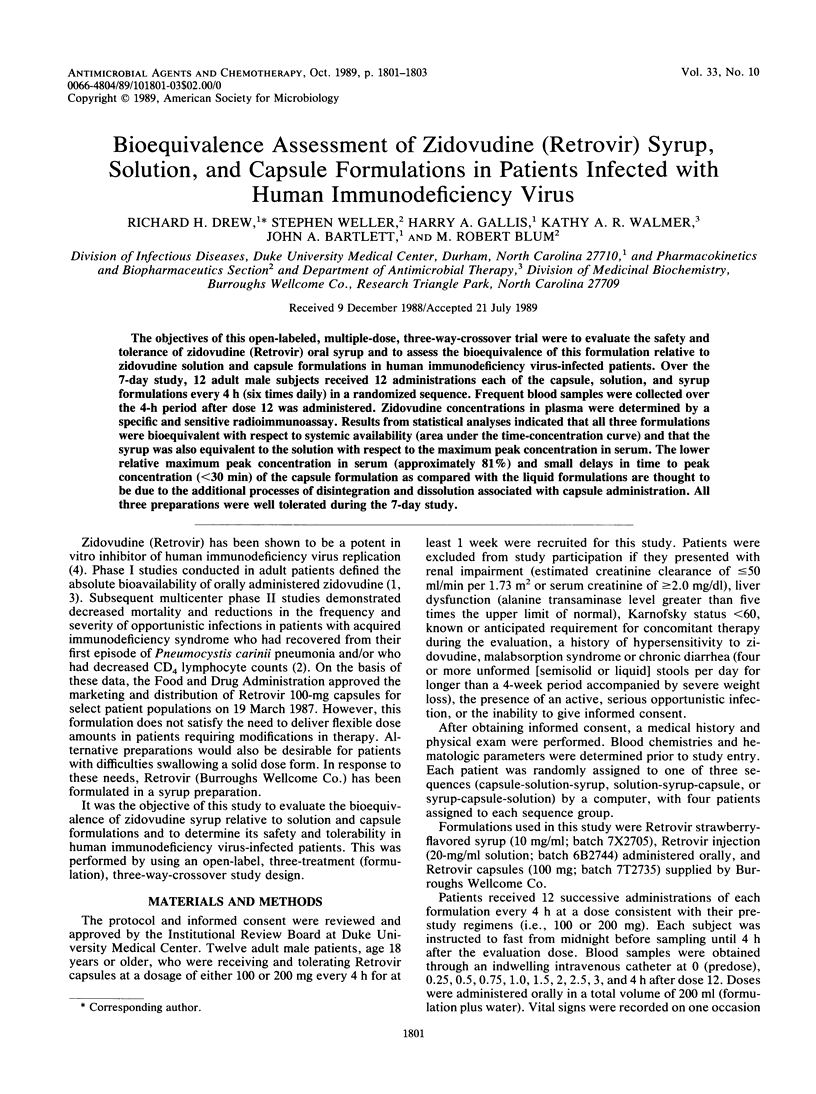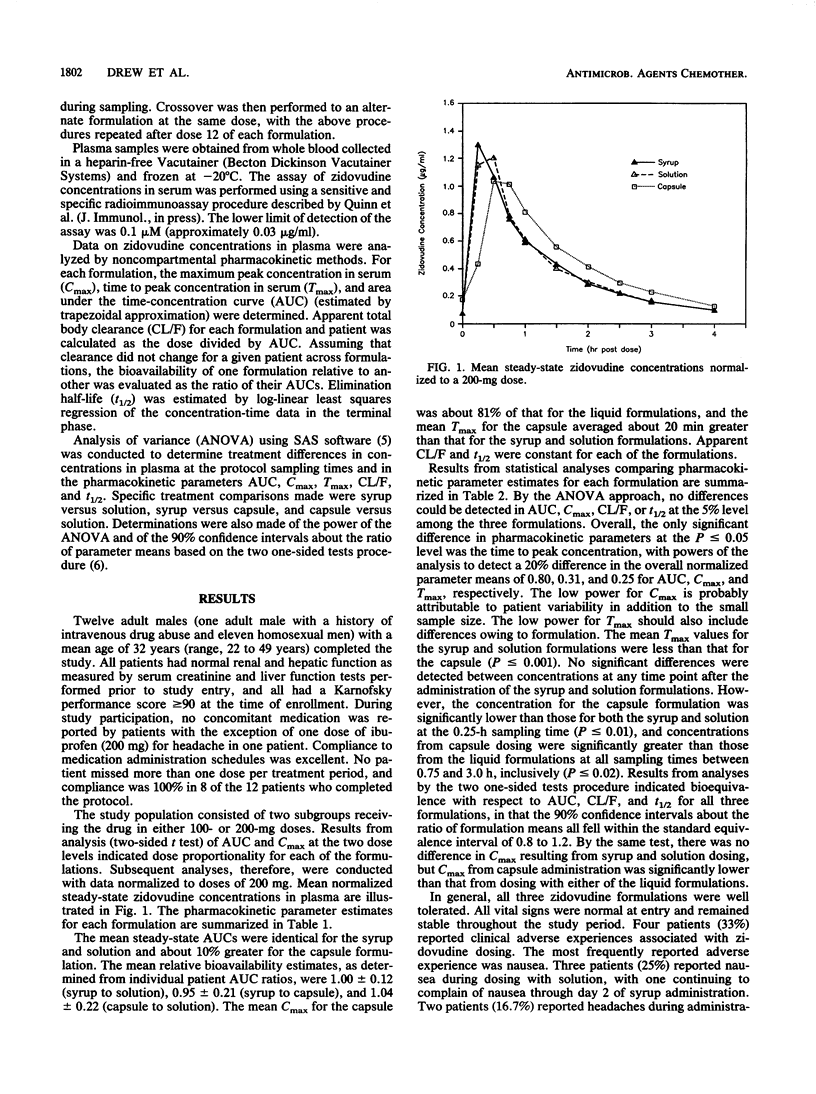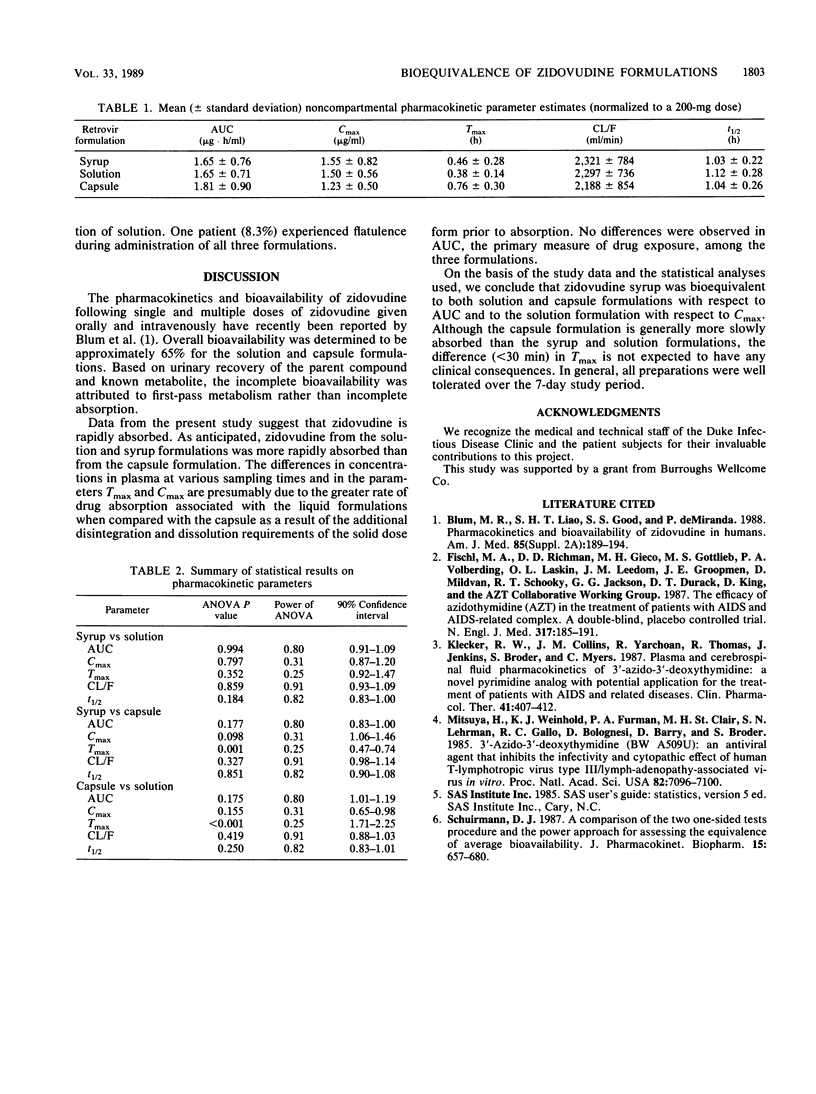Abstract
The objectives of this open-labeled, multiple-dose, three-way-crossover trial were to evaluate the safety and tolerance of zidovudine (Retrovir) oral syrup and to assess the bioequivalence of this formulation relative to zidovudine solution and capsule formulations in human immunodeficiency virus-infected patients. Over the 7-day study, 12 adult male subjects received 12 administrations each of the capsule, solution, and syrup formulations every 4 h (six times daily) in a randomized sequence. Frequent blood samples were collected over the 4-h period after dose 12 was administered. Zidovudine concentrations in plasma were determined by a specific and sensitive radioimmunoassay. Results from statistical analyses indicated that all three formulations were bioequivalent with respect to systemic availability (area under the time-concentration curve) and that the syrup was also equivalent to the solution with respect to the maximum peak concentration in serum. The lower relative maximum peak concentration in serum (approximately 81%) and small delays in time to peak concentration (less than 30 min) of the capsule formulation as compared with the liquid formulations are thought to be due to the additional processes of disintegration and dissolution associated with capsule administration. All three preparations were well tolerated during the 7-day study.
Full text
PDF


Selected References
These references are in PubMed. This may not be the complete list of references from this article.
- Blum M. R., Liao S. H., Good S. S., de Miranda P. Pharmacokinetics and bioavailability of zidovudine in humans. Am J Med. 1988 Aug 29;85(2A):189–194. [PubMed] [Google Scholar]
- Fischl M. A., Richman D. D., Grieco M. H., Gottlieb M. S., Volberding P. A., Laskin O. L., Leedom J. M., Groopman J. E., Mildvan D., Schooley R. T. The efficacy of azidothymidine (AZT) in the treatment of patients with AIDS and AIDS-related complex. A double-blind, placebo-controlled trial. N Engl J Med. 1987 Jul 23;317(4):185–191. doi: 10.1056/NEJM198707233170401. [DOI] [PubMed] [Google Scholar]
- Klecker R. W., Jr, Collins J. M., Yarchoan R., Thomas R., Jenkins J. F., Broder S., Myers C. E. Plasma and cerebrospinal fluid pharmacokinetics of 3'-azido-3'-deoxythymidine: a novel pyrimidine analog with potential application for the treatment of patients with AIDS and related diseases. Clin Pharmacol Ther. 1987 Apr;41(4):407–412. doi: 10.1038/clpt.1987.49. [DOI] [PubMed] [Google Scholar]
- Mitsuya H., Weinhold K. J., Furman P. A., St Clair M. H., Lehrman S. N., Gallo R. C., Bolognesi D., Barry D. W., Broder S. 3'-Azido-3'-deoxythymidine (BW A509U): an antiviral agent that inhibits the infectivity and cytopathic effect of human T-lymphotropic virus type III/lymphadenopathy-associated virus in vitro. Proc Natl Acad Sci U S A. 1985 Oct;82(20):7096–7100. doi: 10.1073/pnas.82.20.7096. [DOI] [PMC free article] [PubMed] [Google Scholar]
- Schuirmann D. J. A comparison of the two one-sided tests procedure and the power approach for assessing the equivalence of average bioavailability. J Pharmacokinet Biopharm. 1987 Dec;15(6):657–680. doi: 10.1007/BF01068419. [DOI] [PubMed] [Google Scholar]


